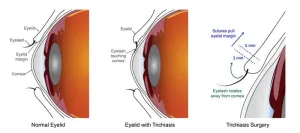(Press-News.org) Patients want providers to reach out early and often to ask about financial needs
First study seeking cancer patient input on how they want to be screened
Findings show how to best deploy policies to screen cancer patients for financial concerns
CHICAGO --- Patients with cancer want their care team to assess them early in treatment about their concerns related to costs of care, reports a Northwestern Medicine study. It is the first time a study has sought cancer patients’ input on how they want to be screened for financial needs.
The financial impact of treatment, referred to as financial toxicity, includes direct costs, such as how much a patient directly pays the hospital for a surgery, and indirect costs, such as the amount of money a patient doesn’t earn when they take off a day of work to go to an appointment.
Prior research has shown that cancer patients who experience financial toxicity have worse quality of life and may be at higher risk of death.
An early financial assessment can identify patients at risk, but there isn’t a consensus on appropriate timing or methods for financial screening.
The study will be published Sept. 17 in JCO Oncology Practice.
“The psychological toll of financial toxicity or the stress and worry that comes with such financial concerns is particularly distressing for patients who are already going through the difficulties of cancer treatment,” said study corresponding author Dr. Laila A. Gharzai, assistant professor of radiation oncology at Northwestern University Feinberg School of Medicine and a Northwestern Medicine physician.
The study surveyed 738 patients who were primarily women battling breast cancer. It showed that most patients prefer their providers reach out regarding financial needs (83%), for this to take place early (82% said when they’re first diagnosed or starting treatment) and to be asked frequently about their ability to pay (78% said at each appointment or once per month).
“It is important to screen patients for risk of financial toxicity so that we can better identify those experiencing it and connect them with resources,” Gharzai said. “While this study was primarily in breast cancer patients, we can extrapolate these findings to all cancer patients, and this has important implications for policy. Continued work refining best practices for financial-toxicity screening should incorporate these patient preferences.”
For patients struggling with financial concerns during treatment, Gharzai said oncology care team members, including social workers and financial navigators, may be available to help identify resources and assistance with other needs, such as transportation. Cancer-specific organizations such as The Pink Fund, which partnered on the study, may offer money to help pay bills for qualifying patients.
Gharzai also is a member of the Robert H. Lurie Comprehensive Cancer Center of Northwestern University.
Other Northwestern authors include Yingzhe (Alex) Liu, Zequn Sun, Michelle Mohn, Alexis Larson, Sheetal Kircher and Betina Yanez.
END
Cancer patients want financial screening early in care, study finds
Patients stressed about paying for care have worse quality of life, higher risk of death
2024-09-17
ELSE PRESS RELEASES FROM THIS DATE:
Black women have a higher risk of dying from all types of breast cancer, meta-analysis reveals
2024-09-17
Breast cancer is the most diagnosed cancer among U.S. women and the second leading cause of cancer death. Black women who develop breast cancer are around 40% more likely to die of the disease than white women, but it was unclear until now whether this disparity exists across all types of breast cancer. Now, a meta-analysis led by Mass General Brigham researchers shows that Black women have a higher risk of dying from breast cancer for all tumor subtypes, and the size of this disparity varies from 17-50% depending on the type of breast cancer.
These findings, ...
‘Good complexity’ can make hospital networks more cybersecure
2024-09-17
In May, a major cyberattack disabled clinical operations for nearly a month at Ascension, a health care provider that includes 140 hospitals across the U.S. Investigators tracked the problem to malicious ransomware that had infected an employee’s computer.
Health care systems offer juicy targets for cybercrime because of the valuable personal, financial, and health data they hold. A 2023 survey of health information technology and IT security professionals reported that 88% of ...
Up to one-third of antibody drugs are nonspecific, study shows
2024-09-17
Integral Molecular, a leader in antibody discovery and characterization, has published new research in the journal mAbs, revealing that as many as one-third of antibody-based drugs exhibit nonspecific binding to unintended targets. A serious concern, off-target drug binding is a significant cause of adverse events in patients, with the potential to even cause death. Analysis of antibody off-target binding across different phases of clinical development suggests this to be a major cause of drug attrition. Early specificity testing could improve drug approvals and patient safety.
Learn how antibody developers can use the Membrane Proteome Array™ to assess specificity ...
Shrinking the pint can reduce beer sales by almost 10%
2024-09-17
Reducing the serving size for beer, lager and cider reduces the volume of those drinks consumed in pubs, bars and restaurants, and could be a useful alcohol control measure, according to research published September 17th in the open-access journal PLOS Medicine. Theresa Marteau and colleagues at the University of Cambridge, UK, found that over a short intervention period, venues that removed the pint and offered two third pints instead, sold 10% less beer by volume compared with when pints were available.
When wine by the glass is offered in smaller servings, the amount sold ...
Unhealthy behaviors contribute to more coronary artery disease deaths in the poor
2024-09-17
Lower socioeconomic status is associated with higher rates of death from coronary artery disease compared to higher socioeconomic status, and more than half of the disparities can be explained by four unhealthy behaviors. Dr. Yachen Zhu of the Alcohol Research Group, U.S., and Dr. Charlotte Probst of the Centre for Addiction and Mental Health, Canada, report these findings in a new study published September 17th in the open-access journal PLOS Medicine.
Coronary artery disease, also known as coronary heart disease or ischemic heart disease, occurs when the arteries supplying the heart cannot deliver enough oxygen-rich blood due to plaque buildup, and is a major cause of death in the ...
Two common surgeries equally effective for treating blinding condition of the eyelid
2024-09-17
Trachomatous trichiasis, a potentially blinding condition where inward-turned eyelashes scratch the front of the eye, can successfully be treated by either of the two most common types of eyelid surgery, according to findings from a large comparison trial funded by the National Institutes of Health. In light of previous, smaller studies, which suggested that one of the commonly used surgery types had poorer outcomes, this study provides reassurance that either technique can treat the condition. The study, published in PLOS Neglected ...
NIH grant supports research into environmental factors regarding male fertility
2024-09-17
DETROIT — A grant from the National Institutes of Health will support ongoing research at Wayne State University investigating the consequences environmental factors may have on fertility in males.
The five-year, $3,082,404 grant from the National Institute of Environmental Health Sciences of the National Institutes of Health is led by Richard Pilsner, Ph.D., professor and the Robert J. Sokol, M.D., Endowed Chair of Molecular Obstetrics and Gynecology in the C.S. Mott Center for Human Growth and Development in the department of Obstetrics/Gynecology at Wayne State, and faculty member in the Institute of Environmental ...
Children’s National Hospital selected to lead next-generation BARDA Accelerator Network Special Populations Hub
2024-09-17
WASHINGTON (September 17, 2024) – Children’s National Hospital, widely recognized for its expertise and innovation in pediatric care, has been chosen by the Biomedical Advanced Research and Development Authority (BARDA) to lead the Special Populations Hub in the next generation of the BARDA Accelerator Network. BARDA, is part of the Administration for Strategic Preparedness and Response (ASPR) within the U.S. Department of Health and Human Services (HHS).
The next generation of the BARDA Accelerator Network builds on lessons learned from the first iteration of the network ...
What happens to patients when their GP retires or relocates?
2024-09-17
Norway introduced its Regular GP Scheme was introduced in 2001. This gave all citizens the right to choose a GP in their home municipality and facilitates personal continuity between the doctor and the patient.
These types of long-term doctor-patient relationships are associated with reduced use of emergency health services and lower mortality, both internationally and in Norway.
A widely discussed Norwegian study from 2022 showed that patients who had the same GP for more than fifteen years had a 25 per cent lower risk of dying compared to patients who had the same GP for one year or less.
However, there has been an increasing shortage of GPs in recent years. As of July 2024, just over ...
Cancer cells may be using lipids to hide from the immune system
2024-09-17
Cancer cells seldom start off stealthy. Quite to the contrary, they announce their presence to the immune system by planting chemical red flags right on their membranes. Once alerted, the body’s defenses can swoop in, destroying rogue cells before they can do much damage. Lying at the heart of this early warning system are lipids, fatty compounds previously seen by cancer biologists primarily as a fuel source for burgeoning tumors.
But now, a new study in Nature demonstrates that one particular lipid type is actually ...
LAST 30 PRESS RELEASES:
Pekingese, Shih Tzu and Staffordshire Bull Terrier among twelve dog breeds at risk of serious breathing condition
Selected dog breeds with most breathing trouble identified in new study
Interplay of class and gender may influence social judgments differently between cultures
Pollen counts can be predicted by machine learning models using meteorological data with more than 80% accuracy even a week ahead, for both grass and birch tree pollen, which could be key in effective
Rewriting our understanding of early hominin dispersal to Eurasia
Rising simultaneous wildfire risk compromises international firefighting efforts
Honey bee "dance floors" can be accurately located with a new method, mapping where in the hive forager bees perform waggle dances to signal the location of pollen and nectar for their nestmates
Exercise and nutritional drinks can reduce the need for care in dementia
Michelson Medical Research Foundation awards $750,000 to rising immunology leaders
SfN announces Early Career Policy Ambassadors Class of 2026
Spiritual practices strongly associated with reduced risk for hazardous alcohol and drug use
Novel vaccine protects against C. diff disease and recurrence
An “electrical” circadian clock balances growth between shoots and roots
Largest study of rare skin cancer in Mexican patients shows its more complex than previously thought
Colonists dredged away Sydney’s natural oyster reefs. Now science knows how best to restore them.
Joint and independent associations of gestational diabetes and depression with childhood obesity
Spirituality and harmful or hazardous alcohol and other drug use
New plastic material could solve energy storage challenge, researchers report
Mapping protein production in brain cells yields new insights for brain disease
Exposing a hidden anchor for HIV replication
Can Europe be climate-neutral by 2050? New monitor tracks the pace of the energy transition
Major heart attack study reveals ‘survival paradox’: Frail men at higher risk of death than women despite better treatment
Medicare patients get different stroke care depending on plan, analysis reveals
Polyploidy-induced senescence may drive aging, tissue repair, and cancer risk
Study shows that treating patients with lifestyle medicine may help reduce clinician burnout
Experimental and numerical framework for acoustic streaming prediction in mid-air phased arrays
Ancestral motif enables broad DNA binding by NIN, a master regulator of rhizobial symbiosis
Macrophage immune cells need constant reminders to retain memories of prior infections
Ultra-endurance running may accelerate aging and breakdown of red blood cells
Ancient mind-body practice proven to lower blood pressure in clinical trial
[Press-News.org] Cancer patients want financial screening early in care, study findsPatients stressed about paying for care have worse quality of life, higher risk of death




